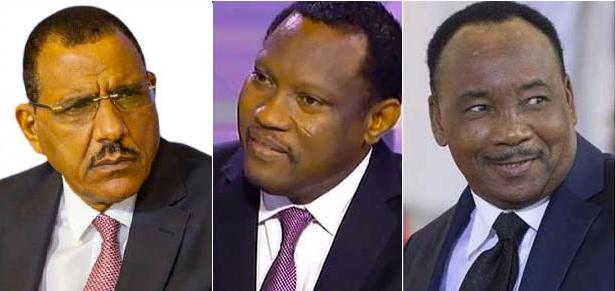
On 23 July in our Sahara Focus regular monthly report we predicted that Mali’s political crisis will have serious implications for the whole region.
Following the regime’s lethal gun attack on the 11 July peaceful demonstration, the way in which Mali’s political crisis develops will have serious implications for the entire West African and Sahelian regions.
If President Ibrahim Boubacar Keïta (IBK) is forced to resign by the deepening opposition against him, it may open the door to extra-constitutional action against many of the regions’ other corrupt and dysfunctional presidents. Niger and Chad look especially vulnerable which explains the Economic Community of West African States’ (ECOWAS) opposition to IBK’s removal.
If, on the other hand, some sort of deal is achieved — by which IBK remains in office in some way — the political crisis will inevitably re-emerge because the fundamental reasons for the crisis will remain unresolved. Indeed, it is debatable whether the Malian state in its current institutional and constitutional form can be saved.
It is essential that a full enquiry is held into who ordered the Forsat anti-terrorism forces onto Bamako’s streets with live ammunition. If, as it seems likely, it transpires that IBK or his immediate entourage were behind the order then he has crossed a dangerous red line and his Presidency will almost certainly be terminated, possibly with criminal charges to follow.
For the rest of the Sahel, with the exception of Mauritania, the future looks equally bleak. Besides the COVID-19 crisis, there are no signs that the governments, whose security forces have also been accused of ‘war crimes’, are doing anything to address the situation. Instead their propensity for impunity and cover-up is increasing.
This increasing failure of the regional states will lead to: escalating political discontent as currently evidenced in Mali; and the likely rise of civil society organisations which will attempt to protect citizens from the tyranny of their failed states.
The international community and especially the West will — because of the failure of both France and the Sahel governments to condemn the war crimes and stamp out impunity — probably reduce its military and financial support for the region and some of its states.
Meanwhile the actions of the regimes and their security forces will dramatically assist the jihadists groups’ recruitment drive so it is likely that jihadist activity will increase in terms of geography and intensity.
Chad’s insistence on retaining its army within its domestic borders may well be the first step in the disintegration of the G5S force, which has never been fully mobilised. Déby’s promotion to the title of Marshall will merely reinforce his reputation as another of Africa’s more eccentric and diabolical despots.
Burkina Faso’s effective legalisation of death squads is a large step downthe region’s slippery slope into anarchy.
This excerpt is taken from Sahara Focus, our monthly intelligence report on the Sahara region. Click here to receive a free sample copy.



